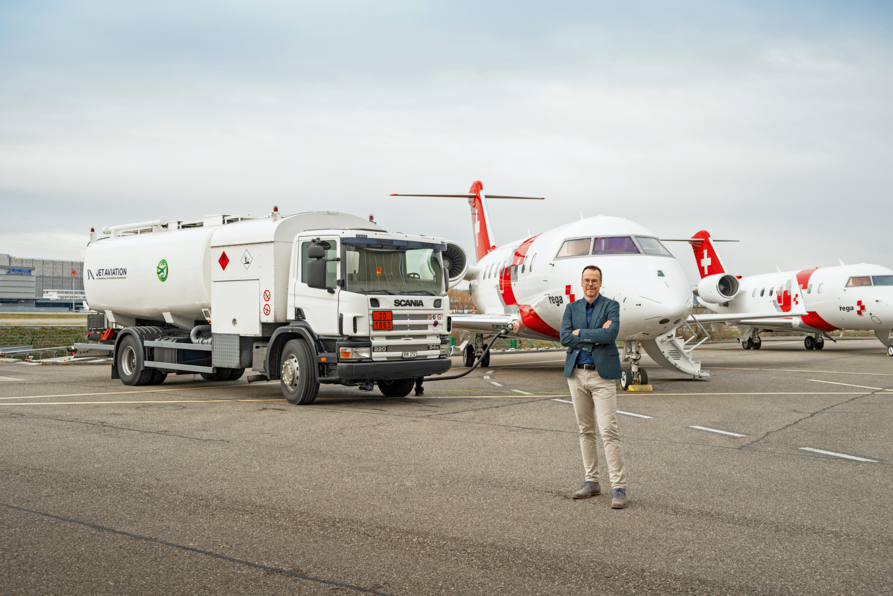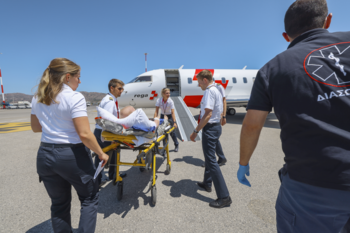What information is needed for a mission?
We take care of the contracts with kerosene suppliers, traffic rights and implementing the requirements of the customs authorities. We negotiate with authorities and partners all over the world and conclude agreements with them. These apply even though – unlike a “normal” airline – we do not have a regular, recurring flight schedule and only know a short time in advance when we will be flying to a particular airport. As a result, the Rega jets can be turned around quickly and efficiently at all the airports. That means, for example, that someone comes onto the airfield to refuel the jet or that the ambulance vehicle is able to drive up to the aircraft.
How do you make this information available to the Operations Centre?
We have our own database which contains, among other things, the contact details for every airport, the current prices of fuel suppliers, details of handling agents, special opening hours and information on customs procedures.
How do you keep all this information up to date?
The feedback from the Operations Centre and the jet crews after a mission is a great help. If they report to us difficulties or changes in procedures, we follow this up and amend the information in our database. In addition, we actively approach the authorities and negotiate new options, so that the next time everything runs smoothly.
What do traffic rights involve?
In order for our jets to be permitted to fly to or over a country, we need so-called traffic rights. The procedures to obtain these permits vary from one country to another. We keep a separate dossier for each country. It contains all the key data on overflight rights or authorisation procedures.
Do you also obtain all the necessary permits?
No. My team deal with the procedures that are necessary to obtain the flight rights. Either the dispatcher or the flight coordinator at the Jet Operations Centre then takes care of the overflight or landing permits.
What fascinates you about your job?
We are in daily contact with people all over the world and sometimes have to overcome cross-cultural obstacles. In a very specialised field, we contribute in the background towards making sure that the missions performed by our jet crews go as smoothly as possible. If we do our job well, the mission runs like clockwork, which directly benefits our patients.

